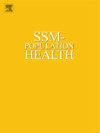A proactive Covid-19 response associated with better health and economic outcomes for OECD High-Income Island Countries
IF 3.1
2区 医学
Q1 PUBLIC, ENVIRONMENTAL & OCCUPATIONAL HEALTH
引用次数: 0
Abstract
Objectives
We examined how the Covid-19 pandemic response and outcomes varied amongst the six island countries that were all in the high-income OECD grouping.
Methods
The OECD island countries were ranked according to key health and macroeconomic outcomes, and stringency of control measures compared with proactivity of pandemic response.
Results
The top ranked country for health outcomes was NZ with the lowest cumulative excess mortality rate to the end of 2023 (20 per 100,000 population), followed by Australia and Iceland (both 137), Japan (226), Ireland (229) and the UK (390). For combined macroeconomic outcomes (changes in GDP per capita growth [2019 to 2020; 2020 to 2021] and changes in unemployment levels [2020–2023]), the countries with the best rankings were Australia, NZ and Ireland. Median stringency was lowest for NZ, but highest for Australia. NZ had the highest average rank for proactivity of key control measures.
Conclusions
This study provides additional evidence, for island nations, that an exclusion and elimination strategy can provide superior health/macroeconomic pandemic outcomes, compared with suppression/mitigation strategies.
积极应对Covid-19可改善经合组织高收入岛屿国家的健康和经济成果
我们研究了在经合组织高收入集团的六个岛屿国家中,Covid-19大流行的应对和结果是如何变化的。方法根据主要卫生和宏观经济结果以及控制措施的严格程度与大流行应对的主动性进行排名。结果健康结果排名最高的国家是新西兰,截至2023年底,新西兰的累积超额死亡率最低(每10万人中有20人),其次是澳大利亚和冰岛(均为137人)、日本(226人)、爱尔兰(229人)和英国(390人)。综合宏观经济结果(人均GDP增长变化[2019年至2020年;[2020 - 2021年]和失业率变化[2020 - 2023年]),排名最高的国家是澳大利亚、新西兰和爱尔兰。严格程度中值最低的是新西兰,最高的是澳大利亚。新西兰在关键控制措施主动性方面的平均排名最高。本研究为岛国提供了额外的证据,表明与抑制/缓解策略相比,排除和消除策略可以提供更好的健康/宏观经济大流行结果。
本文章由计算机程序翻译,如有差异,请以英文原文为准。
求助全文
约1分钟内获得全文
求助全文
来源期刊

Ssm-Population Health
PUBLIC, ENVIRONMENTAL & OCCUPATIONAL HEALTH-
CiteScore
6.50
自引率
2.10%
发文量
298
审稿时长
101 days
期刊介绍:
SSM - Population Health. The new online only, open access, peer reviewed journal in all areas relating Social Science research to population health. SSM - Population Health shares the same Editors-in Chief and general approach to manuscripts as its sister journal, Social Science & Medicine. The journal takes a broad approach to the field especially welcoming interdisciplinary papers from across the Social Sciences and allied areas. SSM - Population Health offers an alternative outlet for work which might not be considered, or is classed as ''out of scope'' elsewhere, and prioritizes fast peer review and publication to the benefit of authors and readers. The journal welcomes all types of paper from traditional primary research articles, replication studies, short communications, methodological studies, instrument validation, opinion pieces, literature reviews, etc. SSM - Population Health also offers the opportunity to publish special issues or sections to reflect current interest and research in topical or developing areas. The journal fully supports authors wanting to present their research in an innovative fashion though the use of multimedia formats.
 求助内容:
求助内容: 应助结果提醒方式:
应助结果提醒方式:


